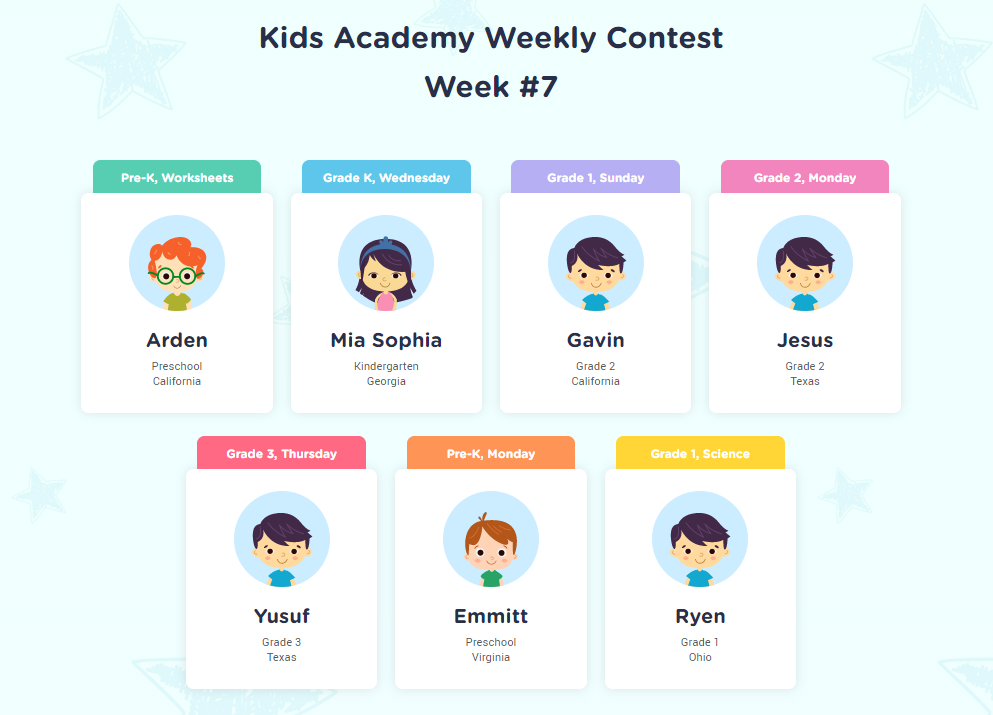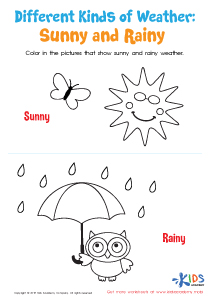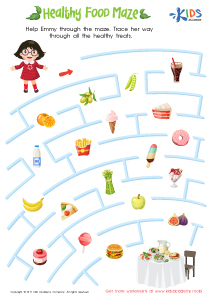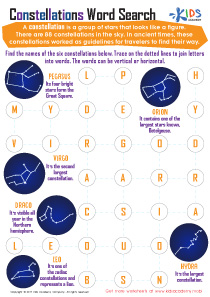Multiplication practice Easy Science Worksheets for Ages 4-8
5 filtered results
-
From - To
Welcome to our Multiplication Practice Easy Science Worksheets, designed specifically for children aged 4-8. These engaging worksheets combine fun science themes with essential math skills, making learning multiplication enjoyable and interactive. Each worksheet features age-appropriate exercises that reinforce multiplication concepts while stimulating a child's curiosity for science. Our resources are perfect for classroom use or homeschooling, ensuring your young learners build a solid foundation in math. With colorful visuals and easy-to-follow instructions, your child will develop confidence in their multiplication abilities in no time. Explore our collection today to make learning a fun adventure for your little scientists!
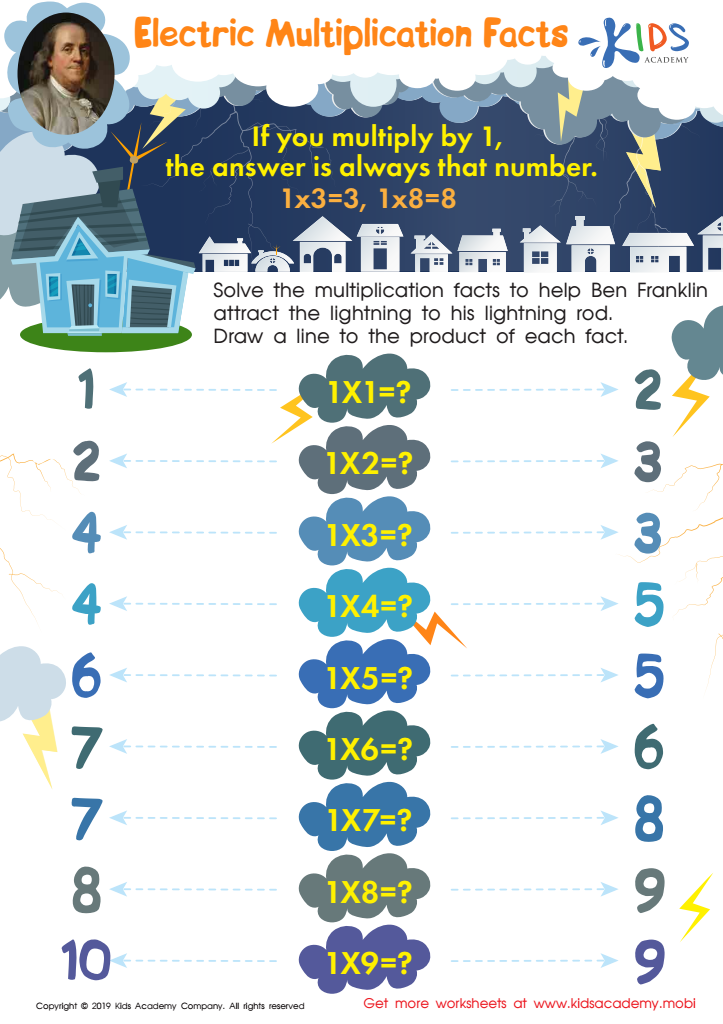

Electric Multiplication Facts Worksheet
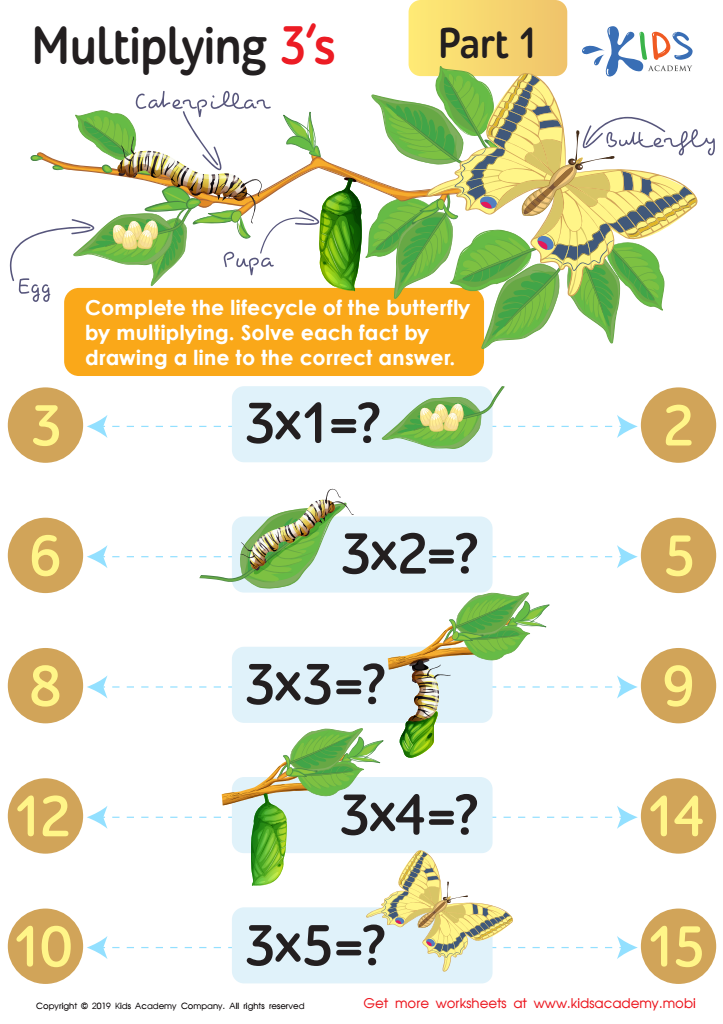

Multiplying 3’s Part 1 Worksheet
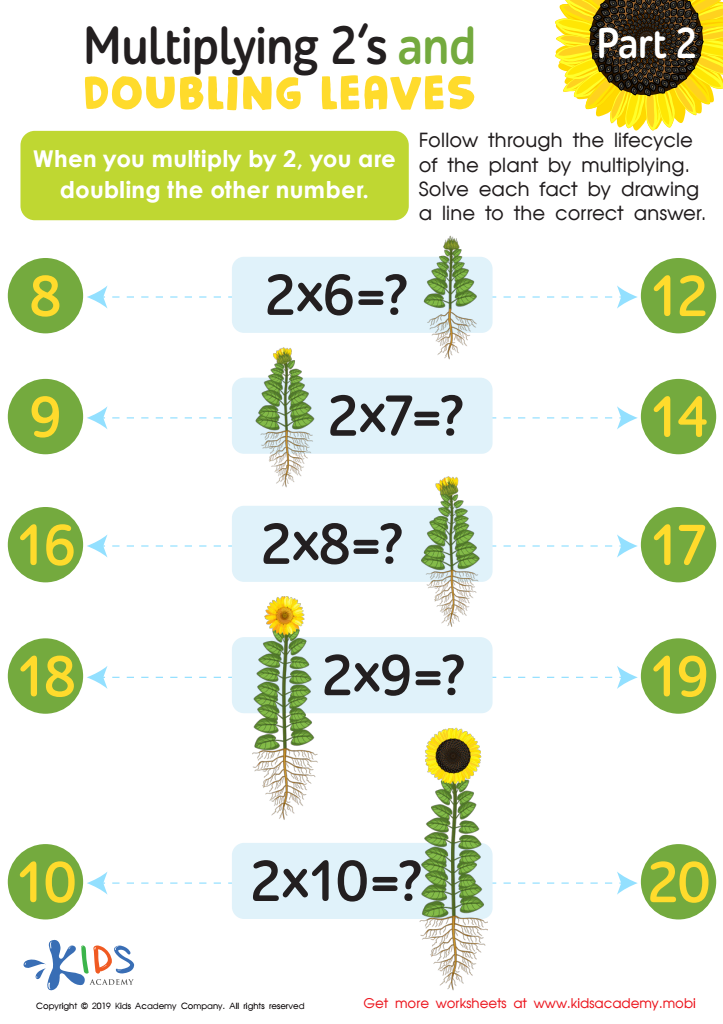

Multiplying 2’s and Doubling Leaves Part 2 Worksheet
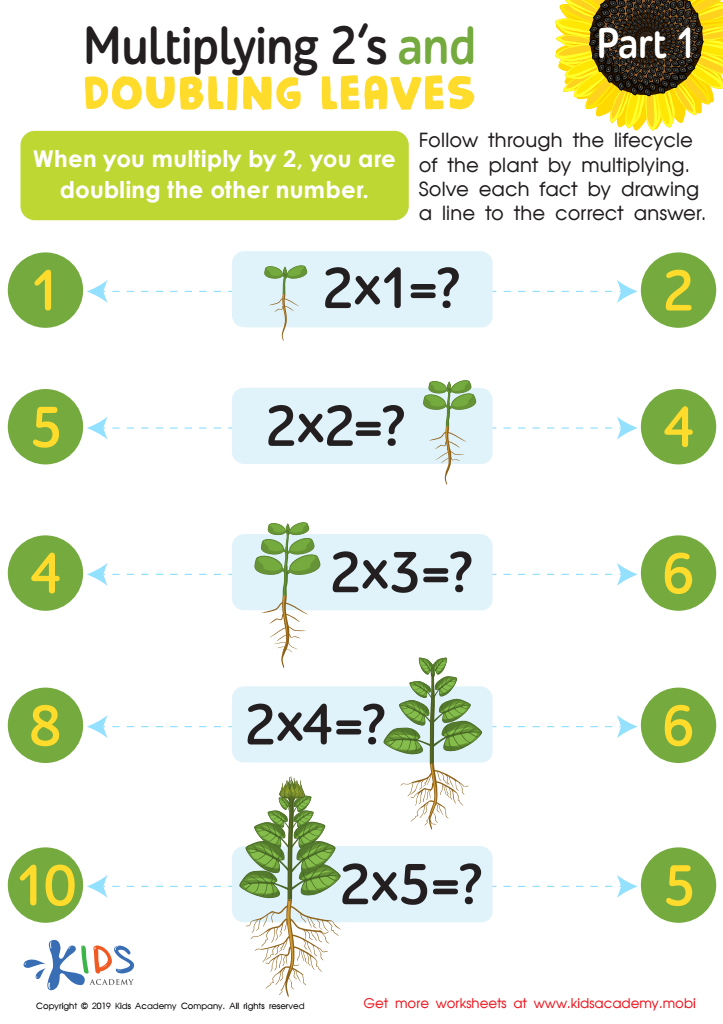

Multiplying 2’s and Doubling Leaves Part 1 Worksheet
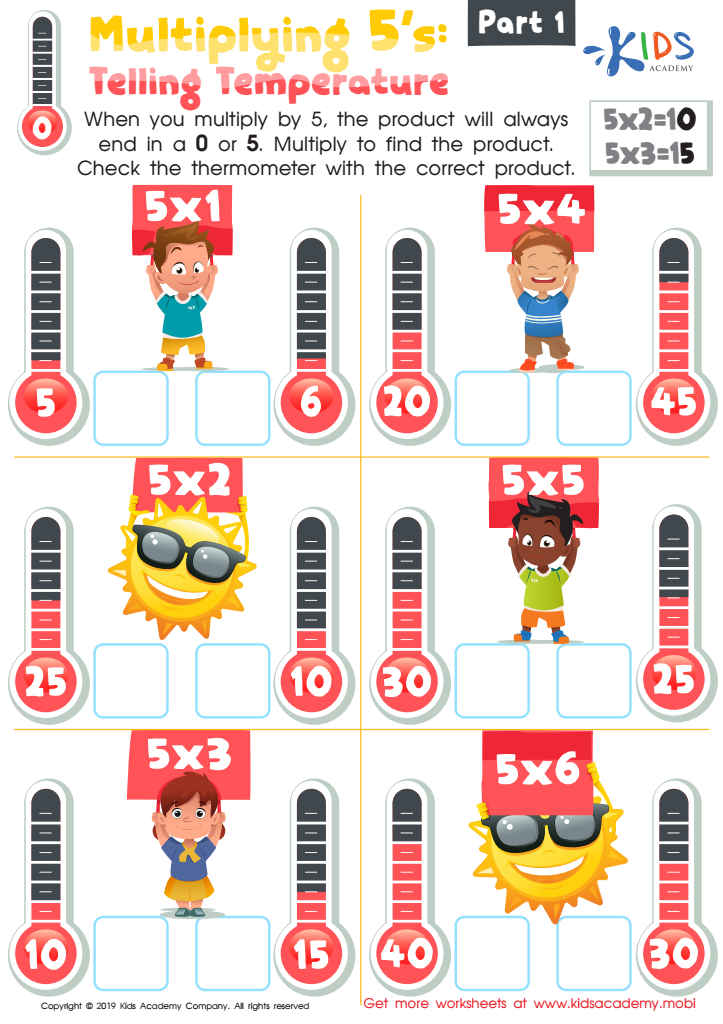

Multiplying 5’s: Telling Temperature Worksheet
Parents and teachers should care about multiplication practice for young learners aged 4-8 because a solid foundation in mathematics is crucial for a child's overall academic success. Early understanding of multiplication not only helps children grasp core math concepts but also reinforces critical thinking and problem-solving skills. Engaging in multiplication practice at a young age can mitigate anxiety around math as they progress in their education.
Additionally, introducing multiplication through easy science-related contexts can make learning more relatable and enjoyable. Children are naturally curious; integrating math with scientific exploration fosters interdisciplinary learning that captures their interest. This practice helps young learners recognize the relevance of math in the world around them, making it more engaging.
Moreover, developing multiplication skills early prepares children for more complex math concepts they will encounter in later grades. Mastery of multiplication can lead to increased confidence, allowing children to approach math challenges with a positive mindset. By investing time in multiplication practice, parents and teachers are equipping children with essential skills they will use throughout their education, setting them on a path for future academic and personal success.
 Assign to My Students
Assign to My Students








